Agriculture
We offer a wide range of dynamic courses that cater to your unique educational and career goals.
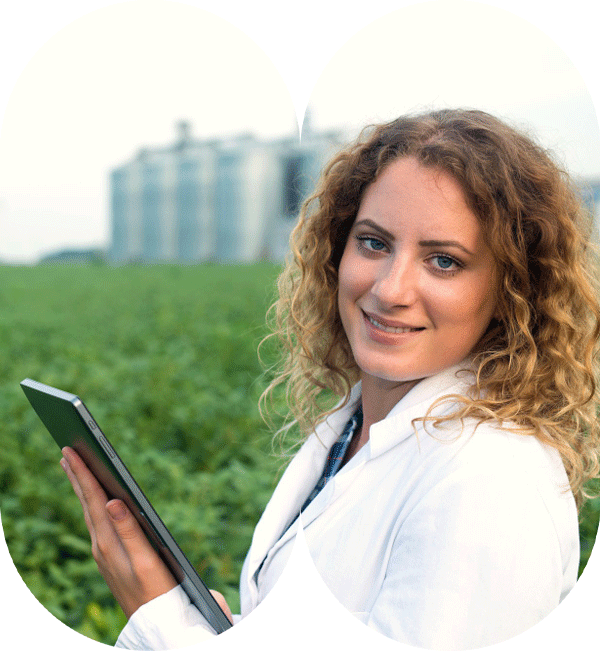
Sustainable Agriculture and Rural Development
Embark on a transformative educational journey with our Diploma in Sustainable Agriculture and Rural Development at American Skill University. This comprehensive program, led by industry experts, delves into the latest practices of organic farming, resource-efficient techniques, and agroecology. Through a unique blend of theoretical knowledge and hands-on experience, you will be equipped to revolutionize farming practices and drive rural prosperity. Our emphasis on environmental conservation and community development ensures a holistic approach to sustainable agriculture. Join us to cultivate expertise that not only benefits farmers but also contributes to building a resilient, sustainable, and prosperous rural landscape. Enroll now at American Skill University and become a catalyst for positive change in the realm of agriculture and rural development.
Diploma in Sustainable Agriculture and Rural Development - Benefits
Introduction
In an era of growing environmental concerns and a burgeoning global population, the need for sustainable agricultural practices and thriving rural communities has never been more urgent. The Diploma in Sustainable Agriculture and Rural Development equips you with the knowledge, skills, and practical expertise to address these critical challenges and contribute to a more sustainable future.
This comprehensive program delves into the intricacies of sustainable agriculture, encompassing a wide range of topics, including:
Sustainable Farming Practices: Learn about eco-friendly agricultural techniques that conserve resources, protect the environment, and enhance soil health, such as organic farming, precision agriculture, and agroforestry.
Rural Development Strategies: Explore approaches to foster economic growth, improve infrastructure, and enhance social well-being in rural communities, promoting sustainable livelihoods and reducing poverty.
Food Systems Analysis: Understand the complex interactions between agriculture, food processing, distribution, consumption, and waste management, identifying opportunities for sustainable food systems.
Policy and Governance: Gain insights into the role of policies, regulations, and governance frameworks in shaping sustainable agriculture and rural development initiatives.
Community Engagement and Social Change: Develop skills in participatory approaches, stakeholder engagement, and conflict resolution, fostering collaboration and empowering rural communities.
Graduates of the Diploma in Sustainable Agriculture and Rural Development are highly sought-after by:
Non-governmental Organizations (NGOs): Manage projects related to sustainable agriculture, rural development, food security, and environmental conservation.
Government Agencies: Develop and implement policies, programs, and initiatives to promote sustainable agriculture and rural development at local, national, or international levels.
Research Institutions: Conduct research on sustainable agricultural practices, rural development strategies, and food systems sustainability.
Private Sector Organizations: Implement sustainable practices in agricultural production, food processing, and distribution, promoting ethical sourcing and responsible supply chains.
Consulting Firms: Advise clients on sustainable agriculture, rural development, and food systems transformation, providing expertise to businesses, governments, and organizations.
This is your opportunity to become a champion of sustainability, a rural development specialist, and a catalyst for positive change. Embrace the challenge, master the principles of sustainable agriculture and rural development, and join the movement towards a more sustainable and equitable future for all.
Top 6Major Global Universities Offering a Diploma in Sustainable Agriculture and Rural Development:
- Wageningen University and Research (Netherlands)
- University of California, Davis (USA)
- University of Copenhagen (Denmark)
- American Skill University (USA)
- University of Melbourne (Australia)
- Ghent University (Belgium)
Diploma in Sustainable Agriculture and Rural Development - Syllabus
Course Overview
The Diploma in Sustainable Agriculture and Rural Development equips students with the knowledge, skills, and practical expertise to address the critical challenges of sustainable agriculture and rural development. The program delves into the intricate interrelationships between agriculture, rural communities, and the environment, providing a comprehensive understanding of the principles, practices, and policies that can foster sustainable and equitable development in rural areas.
Program Objectives
Upon completion of the Diploma in Sustainable Agriculture and Rural Development, graduates will be able to:
- Analyze the principles and practices of sustainable agriculture, including ecosystem-based approaches, organic farming, precision agriculture, and agroecology.
- Evaluate the social, economic, and environmental impacts of agricultural practices on rural communities and ecosystems.
- Develop and implement sustainable agricultural practices that enhance productivity, conserve resources, and protect the environment.
- Apply community-based approaches to rural development, promoting participatory decision-making, empowerment, and social inclusion.
- Analyze and evaluate policies and programs related to sustainable agriculture and rural development, advocating for equitable and sustainable solutions.
Course Structure
The Diploma in Sustainable Agriculture and Rural Development is a one-year program consisting of two semesters. Each semester comprises a combination of core courses, elective courses, and practical field experiences.
Semester 1
- Introduction to Sustainable Agriculture and Rural Development
- Sustainable Agricultural Practices
- Rural Development Strategies
- Food Systems Analysis
- Policy and Governance for Sustainable Agriculture and Rural Development
Semester 2
- Community Engagement and Social Change
- Advanced Sustainable Agricultural Practices
- Sustainable Rural Development Planning and Implementation
- Sustainable Agriculture and Rural Development Project Management
- Research Methods for Sustainable Agriculture and Rural Development
Practical Field Experiences
Throughout the program, students will participate in a variety of practical field experiences, including:
- Field visits to sustainable farms and rural communities
- Community-based projects
- Internships with organizations working in sustainable agriculture and rural development
Reference Books
- Sustainable Agriculture and Food Systems: An Interdisciplinary Approach by Clare Narodoslawsky and Edward Stockwell
- The Future of Food: Scenarios for 2050 by Paolo Scarpa, Alexandros Xepapadeas, and Joost van Vliet
- Rural Development in a Changing World: New Challenges and Opportunities by Stephen Biggs and James Sumberg
- Rural Transformation: The Dynamics of Change and the Quest for Equity by John Gaventa
- The SAGE Handbook of Rural Studies edited by John Bryden, David Pratt, and Stephen Whatmore
Journals
- Journal of Sustainable Agriculture
- Agroecology and Sustainable Food Systems
- World Development
- Journal of Rural Studies
- Development Policy Review
Related Websites
- Food and Agriculture Organization of the United Nations (FAO)
- World Resources Institute (WRI)
- Sustainable Agriculture Research and Education (SARE)
- International Institute for Environment and Development (IIED)
- Rural Development Institute (RDI)
Useful YouTube Links
- TED Talk: "How to Feed the World Without Destroying the Planet" by Raj Patel
- TED Talk: "The Future of Food" by Anna Lappe
- TED Talk: "Regenerative Agriculture: Revolutionizing Our Food System" by David Montgomery
- TED Talk: "The Power of Agroecology to Save Our Planet" by Miguel A. Altieri
- TED Talk: "The Future of Farming" by Will Allen
Audiobooks
- Drawdown: The Most Comprehensive Plan to Reverse Global Warming by Paul Hawken
- The Soil Will Save Us: How Regenerative Agriculture Can Restore Our Planet by Kristin Ohlson
- The Hidden Half of Nature: The Story of the Soil by David R. Montgomery and Anne Bikle
- Farming the Future: The Science Behind Sustainable Agriculture by Farmer's Friend
- The Omnivore's Dilemma: A Natural History of Four Meals by Michael Pollan
Precision Agriculture
Embark on a cutting-edge educational journey with our Diploma in Precision Agriculture at American Skill University. In an era where technology is revolutionizing agriculture, this program equips you with the knowledge and skills to navigate the dynamic field of precision farming. Delve into advanced technologies such as GPS-guided machinery, sensors, and data analytics, optimizing crop yields and resource efficiency. Led by industry experts, our curriculum blends theory with hands-on experience, ensuring you’re well-prepared for the evolving landscape of modern agriculture. Join us to cultivate expertise in precision agriculture and contribute to sustainable and efficient farming practices. Enroll now at American Skill University and be at the forefront of the agricultural revolution. Your journey towards precision and innovation in agriculture begins here.
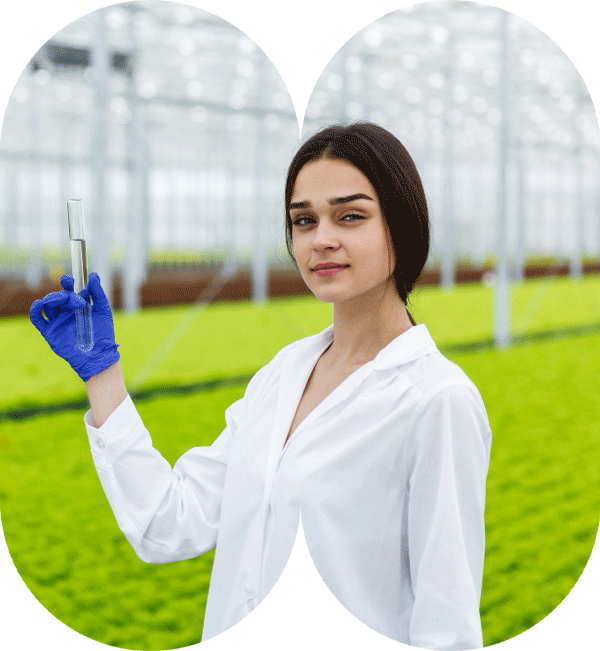

Diploma in Precision Agriculture - Benefits
In today's dynamic agricultural landscape, precision agriculture has emerged as a transformative approach to optimizing crop production, resource utilization, and environmental sustainability. The Diploma in Precision Agriculture equips you with the skills and knowledge to harness the power of data-driven technologies and advanced techniques to revolutionize agricultural practices.
This comprehensive program delves into the core principles and practical applications of precision agriculture, encompassing a wide range of topics, including:
Geographical Information Systems (GIS) and Remote Sensing: Master the use of GIS and remote sensing technologies to analyze spatial data, identify patterns in crop health and yield variability, and make informed decisions for precision management.
Precision Crop Management: Learn to utilize data analytics, variable-rate application techniques, and precision irrigation systems to optimize crop inputs, maximize yields, and minimize environmental impact.
Precision Livestock Management: Apply precision technologies to monitor animal health, track individual performance, and enhance feed management for efficient livestock production.
Precision Soil Management: Understand the principles of precision soil management, including soil mapping, sensor technology, and targeted nutrient application to optimize soil fertility and crop productivity.
Precision Data Management and Analytics: Develop expertise in data collection, storage, processing, and analysis to extract valuable insights from agricultural data and inform precision agriculture decision-making.
Graduates of the Diploma in Precision Agriculture are highly sought-after by:
Agricultural technology companies: Develop and implement innovative precision agriculture solutions, including sensors, software, and data platforms.
Agricultural consulting firms: Advise farmers and agribusinesses on adopting and implementing precision agriculture practices, optimizing resource use and improving production outcomes.
Government agencies: Develop and implement policies, programs, and initiatives to promote the adoption of precision agriculture practices among farmers.
Research institutions: Conduct research on precision agriculture technologies, techniques, and applications to advance the field and contribute to sustainable agricultural practices.
Farming enterprises: Implement precision agriculture practices in their own operations to improve efficiency, productivity, and environmental sustainability.
This is your opportunity to become a precision agriculture specialist, a data-driven decision-maker, and a pioneer in sustainable agricultural practices. Embrace the challenge, master the principles of precision agriculture, and join the movement towards a more productive, resource-efficient, and environmentally sustainable agricultural future.
Top 6 Major Global Universities Offering a Diploma in Precision Agriculture:
- Purdue University (USA)
- University of Sydney (Australia)
- University of Saskatchewan (Canada)
- American Skill University (United States)
- Aarhus University (Denmark)
- Wageningen University and Research (Netherlands)
Diploma in Precision Agriculture - Syllabus
Course Overview
Precision agriculture is a rapidly growing field that uses technology to improve crop production and sustainability. This diploma program will provide you with the knowledge and skills you need to succeed in this exciting field
Program Objectives
- Understand the principles of precision agriculture
- Apply precision agriculture technologies to improve crop production and sustainability
- Collect, analyze, and interpret agricultural data
- Develop and implement precision agriculture management plans
- Communicate effectively about precision agriculture
Course Schedule
Semester 1
- Introduction to Precision Agriculture
- Soil and Crop Variability
- Global Positioning Systems (GPS)
- Remote Sensing and Imagery
- Geographic Information Systems (GIS)
Semester 2
- Variable Rate Application (VRA) Technologies
- Precision Irrigation
- Precision Nutrient Management
- Precision Weed and Pest Management
- Precision Harvest Management
Reference Books
- "Precision Agriculture: A Quantitative Approach" by Robert H. Taylor and Warren R. Binns
- "Precision Agriculture for Sustainability" by John Stafford
- "Precision Agriculture Technology and Applications" by Michael Blackmore, Donald J. Roberts, and Elizabeth A. Harlan
- "GIS and Remote Sensing in Precision Agriculture" by J.A. Gómez-Dans, J.L. Sevilla-Novarro, J.A. Ferrer-Ortiz, and M. Hermosín-Gutiérrez
- "Precision Agriculture: A Practical Handbook" by C.J. Pearson, J.A. Roberts, and W.J. Bramley
Journals:
- "Precision Agriculture"
- "Journal of Agricultural Science and Technology"
- "Computers and Electronics in Agriculture"
- "Agricultural Engineering International: CIGR Journal"
- "Precision Agriculture for Development"
Related Websites:
- American Society of Agricultural Engineers (ASAE): https://www.asabe.org/
- Precision Agriculture Center (Purdue University): https://ag.purdue.edu/commercialag/home/resource/2021/04/precision-agriculture-and-technology/
- Precision Agriculture Initiative (University of California, Davis): https://www.ucdavis.edu/minors/precision-agriculture
- Precision Agriculture Project (University of Nebraska-Lincoln): https://catalog.unl.edu/undergraduate/agricultural-sciences-natural-resources/precision-agriculture-minor/
- Precision Agriculture for Development (Thematic Group on Precision Agriculture and ICTs for Development): https://precisiondev.org/
Useful YouTube Links:
- "Precision Agriculture Basics" by Ag PhD: https://m.youtube.com/watch?v=I3cGXhgelms
- "Precision Agriculture: The Future of Farming" by World Economic Forum: https://www.youtube.com/watch?v=NEKMl0fa0i0
- "Precision Agriculture: What Farmers Need to Know" by Ag Leader: https://m.youtube.com/watch?v=3E8yHlGhEdk
- "Precision Agriculture: A Revolution in Farming" by The Economist: https://www.youtube.com/watch?v=5vnm1_9w7cY
- "Precision Agriculture: Drones, Sensors, and Data-Driven Farming" by MIT Technology Review: https://m.youtube.com/watch?v=0XfFNPedsxE
Ted Talks:
- "The Future of Farming" by Will Allen: https://www.youtube.com/watch?v=FPdPjTmqLBA
- "Feeding the World in a Changing Climate" by Nina Federoff: https://www.ted.com/talks/nina_fedoroff_a_secret_weapon_against_zika_and_other_mosquito_borne_diseases?language=en
- "The New Science of Farming" by David Montgomery: https://www.youtube.com/watch?v=c4p-kQ6D8aA
- "How Technology Can Help Us Grow Food for the Future" by James Manyika: https://www.youtube.com/watch?v=GlIkue29QJY
- "The Future of Food" by Mark Zuckerberg: https://www.ted.com/search?q=mark+zuckerberg
Audio Books:
- "Precision Agriculture: A Practical Handbook" by C.J. Pearson, J.A. Roberts, and W.J. Bramley: https://www.audible.com/cat/Science/Agricultural-Food-Sciences-Audiobooks/18580556011
- "Precision Agriculture for Sustainability" by John Stafford: https://www.amazon.com/Precision-agriculture-sustainability-Burleigh-Agricultural/dp/1786762048
- "GIS and Remote Sensing in Precision Agriculture" by J.A. Gómez-Dans, J.L. Sevilla-Novarro, J.A. Ferrer-Ortiz, and M. Hermosín-Gutiérrez: Link not provided.
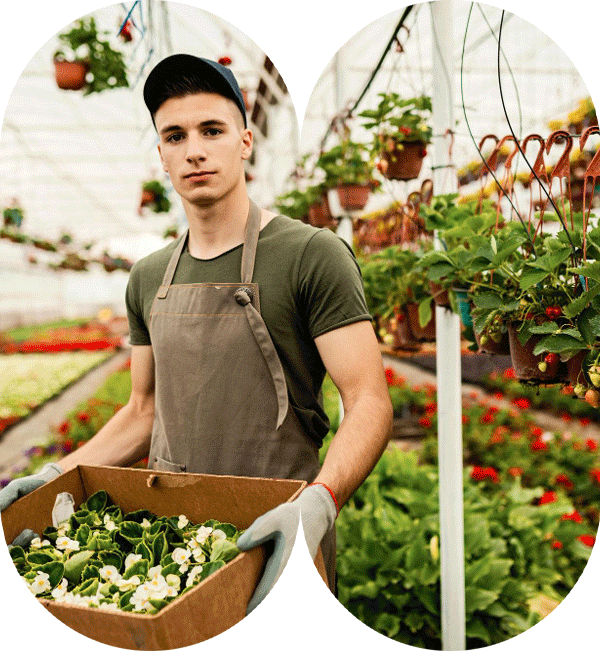
Horticulture
Embark on a vibrant journey into the world of plants and cultivation with our Diploma in Horticulture at American Skill University. This program is crafted for those passionate about plants, landscaping, and sustainable cultivation practices. Explore the art and science of horticulture, covering plant biology, crop management, and landscape design. Our hands-on curriculum, guided by industry experts, ensures you gain practical skills in plant care, pest management, and greenhouse operations. Whether you aspire to be a horticulturist, landscape designer, or entrepreneur, this diploma provides a comprehensive foundation. Enroll now to cultivate your passion for plants and shape a blooming future in horticulture. Your journey towards becoming a skilled horticulturist starts here at American Skill University.
Diploma in Horticulture - Benefits
In a world increasingly drawn to nature's beauty and the importance of sustainable practices, horticulture has emerged as a vibrant and rewarding field. The Diploma in Horticulture equips you with the knowledge, skills, and practical expertise to cultivate a fulfilling career in this diverse and growing industry.
This comprehensive program delves into the captivating world of horticulture, encompassing a wide range of topics, including:
Plant Science Fundamentals: Gain a thorough understanding of plant anatomy, physiology, genetics, and taxonomy, laying the foundation for successful cultivation and management.
Horticultural Practices: Master the techniques and methodologies of plant propagation, cultivation, pest and disease control, and landscape design, ensuring optimal plant health and aesthetic appeal.
Landscape Design and Management: Develop expertise in creating functional and aesthetically pleasing landscapes, incorporating plant selection, hardscaping elements, and sustainable design principles.
Soil Science and Management: Understand the intricacies of soil properties, nutrient management, and irrigation practices to optimize plant growth and soil health.
Horticultural Business and Marketing: Learn the fundamentals of business management, marketing strategies, and customer service to effectively operate a horticultural enterprise.
Graduates of the Diploma in Horticulture are highly sought-after by:
Botanical Gardens and Arboreta: Manage and maintain plant collections, conduct educational programs, and contribute to plant conservation efforts.
Landscape Design and Contracting Firms: Design, install, and maintain private and public landscapes, ensuring the beauty and functionality of outdoor spaces.
Nurseries and Greenhouses: Oversee the production, propagation, and sale of a variety of plants, ensuring high-quality products and customer satisfaction.
Horticultural Retail Stores: Provide expert advice and guidance to customers on plant selection, care, and maintenance, fostering a love for plants among individuals.
Research Institutions and Universities: Conduct research on plant breeding, pest and disease management, sustainable horticulture practices, and contribute to the advancement of the field.
This is your opportunity to become a plant expert, a landscape artist, and a custodian of nature's beauty. Embrace the challenge, master the principles of horticulture, and join a community dedicated to cultivating a greener and more vibrant world.
Top 6 Major Global Universities Offering a Diploma in Horticulture:
Royal Botanic Gardens, Kew (UK)
University of California, Davis (USA)
Kōchi University (Japan)
American Skill University (USA)
University of New South Wales (Australia)
Swedish University of Agricultural Sciences (Sweden)
Diploma in Horticulture - Syllabus
Course Overview
Horticulture is the branch of agriculture that deals with the science, technology, and business of growing fruits, vegetables, flowers, and ornamental plants. This diploma program will provide you with the knowledge and skills you need to succeed in this exciting and rewarding field.
Program Objectives
- Understand the principles of horticulture
- Apply horticultural practices to grow and maintain fruits, vegetables, flowers, and ornamental plants
- Identify, diagnose, and manage plant pests and diseases
- Design and maintain horticultural landscapes
- Develop and implement horticultural business plans
Course Schedule
Semester 1
- Introduction to Horticulture
- Plant Science
- Soil Science and Management
- Plant Propagation
- Plant Nutrition
Semester 2
- Fruit Production
- Vegetable Production
- Flower and Ornamental Plant Production
- Landscape Horticulture
- Horticultural Business Management
Reference Books
- The Fundamentals of Horticulture by Ray D. Heithem, Laurie E. Power, and Charles R. Stangle
- Science in Horticulture: A Biological, Chemical, and Technological Approach by Charles A. Conard and Vernon L. Rudolph
- Horticulture: Plants for People and Places by Jack T. Jones Jr., Loren E. O'Brien, and James E. Shelton
- The Ball Red Book by Charles D. Ball, Timothy T. Ball, and Susan M. Greer
- The New Sunset Western Garden Book by Kathlyn Bush, John Philip Smith, and David R. Chilton
Journals
- Horticulture Science
- Journal of the American Society for Horticultural Science
- Crop Science
- Journal of Economic Botany
- Plants for Human Nutrition
Related Websites
- American Society for Horticultural Science (ASHS): https://ashs.org/
- National Gardening Association (NGA): https://garden.org/
- Cooperative Extension Service (CES): https://extension.org/
- University of California, Davis College of Agriculture and Environmental Sciences: https://caes.ucdavis.edu/
- Cornell Cooperative Extension: https://cals.cornell.edu/cornell-cooperative-extension
Useful YouTube Links
- Introduction to Horticulture by The Ohio State University: https://www.youtube.com/watch?v=UM17WIuUznE
- The Science of Horticulture by Oregon State University: https://m.youtube.com/watch?v=E0RZlbd4HA4
- Plant Propagation by Epic Gardening: https://m.youtube.com/watch?v=WHiv1OvXGcI
- Vegetable Gardening by Self-Sufficient Living: https://www.youtube.com/watch?v=cEmNDoL6-IQ
- Flower Gardening by The Spruce: https://www.youtube.com/watch?v=W_sw8ZwkPng
Ted Talks
- The Secret Life of Plants by David Attenborough: https://www.ted.com/playlists/356/the_secret_lives_of_plants
- How to Grow Your Own Food by Ron Finley: https://www.ted.com/speakers/ron_finley
- The Food Revolution Will Not Be Televised by Carlos Magdalena: https://www.readersdigest.co.uk/inspire/life/carlos-magdalena-the-man-saving-the-world-one-plant-at-a-time
- The Future of Food by Mark Zuckerberg: https://www.youtube.com/watch?v=DzelQ_vaLVY
- The Edible City by Liz Ogborne: https://www.ted.com/talks/liz_ogbu_what_if_gentrification_was_about_healing_communities_instead_of_displacing_them?language=en
Audio Books
- The Fundamentals of Horticulture by Ray D. Heithem, Laurie E. Power, and Charles R. Stangle: https://www.amazon.com/Fundamentals-Horticulture-Theory-Practice/dp/0521707390
- Science in Horticulture: A Biological, Chemical, and Technological Approach by Charles A. Conard and Vernon L. Rudolph: https://www.audible.com/cat/Science/Agricultural-Food-Sciences-Audiobooks/18580556011
- Horticulture: Plants for People and Places by Jack T. Jones Jr., Loren E.O'Brien, and James E. Shelton: https://www.audible.com/cat/Home-Garden/Gardening-Horticulture-Audiobooks/18573713011
- The Ball Red Book by Charles D. Ball, Timothy T. Ball, and Susan M. Greer: https://www.amazon.com/Ball-RedBook-Greenhouses-Chris-Beytes/dp/188305267X
- The New Sunset Western Garden Book by Kathlyn Bush, John Philip Smith, and David R. Chilton
Animal Science
Embark on a captivating exploration of the natural world with our Animal Science program at American Skill University. Delve into the fascinating realms of animal biology, behavior, and health, guided by experts in the field. Our comprehensive curriculum seamlessly blends theoretical foundations with hands-on experiences, ensuring you acquire a well-rounded understanding of animal science. From anatomy and physiology to nutrition and welfare, this program equips you with the knowledge and practical skills needed for a diverse array of careers, spanning agriculture, research, and veterinary sciences. Join us at American Skill University to cultivate your passion for animals and carve a meaningful path in the dynamic field of Animal Science. Enroll now and unleash the potential of a rewarding career dedicated to the welfare of the animal kingdom.
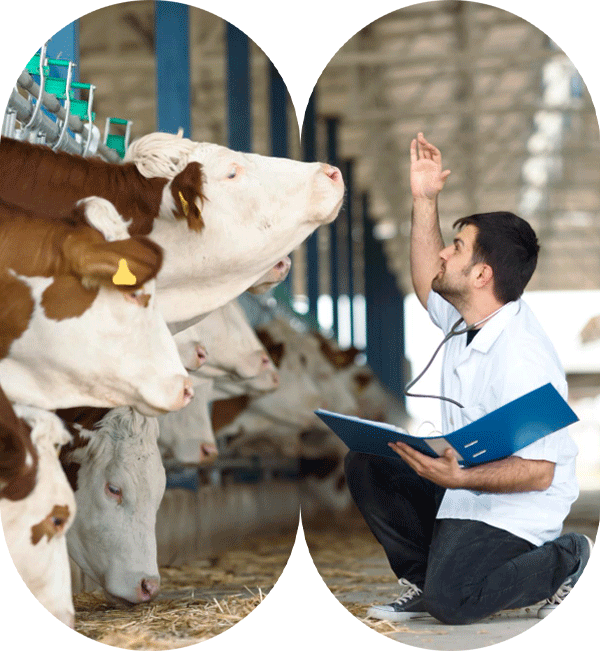

Diploma in Animal Science - Benefits
In a world increasingly concerned with animal welfare, sustainable food production, and the preservation of biodiversity, animal science has emerged as a critical and rewarding field. The Diploma in Animal Science equips you with the knowledge, skills, and practical expertise to navigate this diverse and growing industry, ensuring the well-being of animals and contributing to a more sustainable future.
This comprehensive program delves into the fascinating world of animal science, encompassing a wide range of topics, including:
Animal Anatomy and Physiology: Gain a thorough understanding of the structure, function, and behavior of animal systems, laying the foundation for effective animal care and management.
Animal Nutrition and Feeding: Learn about the nutritional needs of various animal species, formulate balanced rations, and implement feeding strategies that promote optimal animal health and productivity.
Animal Breeding and Genetics: Understand the principles of animal genetics, breeding techniques, and selection strategies to improve animal traits for production, health, and adaptability.
Animal Health and Welfare: Master the principles of animal disease prevention, diagnosis, and treatment, ensuring the well-being of animals under your care.
Animal Production Systems: Explore the different animal production systems, including livestock, poultry, aquaculture, and companion animals, understanding their management practices, challenges, and opportunities.
Graduates of the Diploma in Animal Science are highly sought-after by:
Veterinary Clinics and Hospitals: Assist veterinarians in providing care to animals, including animal handling, restraint, and sample collection.
Animal Shelters and Rescue Organizations: Manage animal care, rehabilitation, and adoption programs, ensuring the well-being of animals in need.
Zoos and Wildlife Conservation Organizations: Contribute to animal conservation efforts, including animal husbandry, research, and education programs.
Animal Feed and Nutrition Companies: Conduct research, formulate animal feed products, and provide technical support to farmers and livestock producers.
Government Agencies: Develop and implement policies, regulations, and programs related to animal welfare, food safety, and animal health.
This is your opportunity to become an animal advocate, a science-driven practitioner, and a champion of sustainable animal production. Embrace the challenge, master the principles of animal science, and join a community dedicated to enhancing the lives of animals and contributing to a more sustainable future for all.
Top 6 Major Global Universities Offering a Diploma in Animal Science:
- Harper Adams University (UK)
- University of Melbourne (Australia)
- American Skill University (USA)
- Iowa State University (USA)
- Wageningen University and Research (Netherlands)
- Massey University (New Zealand)
Diploma in Animal Science - Syllabus
Course Overview
The Diploma in Animal Science program is designed to provide students with a comprehensive understanding of the principles and practices of animal science. The program will cover a wide range of topics, including animal anatomy and physiology, nutrition, breeding, genetics, health, and management. Students will also learn about the latest advancements in animal science and how they are being used to improve the production and welfare of animals.
Program Learning Outcomes
Upon successful completion of this program, students will be able to:
- Demonstrate a strong understanding of the basic principles of animal science.
- Apply knowledge of animal science to solve practical problems in animal production and welfare.
- Communicate effectively about animal science concepts and issues.
- Conduct independent research on animal science topics.
Course Structure
The program is divided into two semesters, each lasting 15 weeks. Each semester is further divided into three modules, each lasting 5 weeks. Students will take a total of 18 courses, each worth 3 credits.
Semester 1
Module 1: Introduction to Animal Science
- Introduction to Animal Science
- Animal Anatomy and Physiology
- Animal Nutrition
Module 2: Animal Breeding and Genetics
- Principles of Animal Breeding
- Genetics of Animal Breeding
- Breeding Systems for Farm Animals
Module 3: Animal Health and Management
- Animal Health and Diseases
- Animal Welfare
- Animal Housing and Management
Semester 2
Module 1: Animal Reproduction and Development
- Reproductive Systems of Farm Animals
- Animal Reproduction and Development
- Artificial Insemination and Embryo Transfer
Module 2: Animal Nutrition and Feeding
- Feedstuff Evaluation and Nutrient Requirements
- Ration Formulation for Farm Animals
- Feeding Management for Different Classes of Animals
Module 3: Animal Production and Management
- Dairy Cattle Production
- Beef Cattle Production
- Sheep and Goat Production
- Pig Production
- Poultry Production
Reference Books
- Animal Science: An Introduction to the Science of Animal Agriculture by B. E. Mostert
- Animal Physiology by W. D. Carlson and H. Gilman
- Animal Nutrition by S. J. Slatter and B.E. Saxton
- Animal Breeding and Genetics by M. N. Thompson and T. G. Grandin
- Animal Health and Welfare by B. E. Rollin and J. S. Reynolds
Journals
- Journal of Animal Science
- Livestock Production Science
- Animal Welfare
- Poultry Science
- Journal of Dairy Science
Related Websites
- American Society of Animal Science
- Animal Science Association of Australia
- Canadian Animal Science Association
- British Society of Animal Science
- New Zealand Society of Animal Production
Useful YouTube Links
- Animal Science by Crash Course
- The Science of Animal Agriculture by The Royal Agricultural Society of England
- Animal Welfare by The Humane Society of the United States
- Animal Genetics by The American College of Veterinary Pathologists
- Animal Nutrition by The World Organisation for Animal Health
Ted Talks
- The Science of Animal Welfare by Temple Grandin
- The Future of Food: How Animals Will Feed the World by John Bryant
- The Importance of Animal Agriculture by Chris Hurt
- How Meat Can Be Ethical by Nil Zacharias
- The Future of Meat by Paul Shapiro
Audio Books
- Animal Science: An Introduction to the Science of Animal Agriculture by B. E. Mostert
- Animal Physiology by W. D. Carlson and H. Gilman
- Animal Nutrition by S. J. Slatter and B.E. Saxton
- Animal Breeding and Genetics by M. N. Thompson and T. G. Grandin
- Animal Health and Welfare by B. E. Rollin and J. S. Reynolds
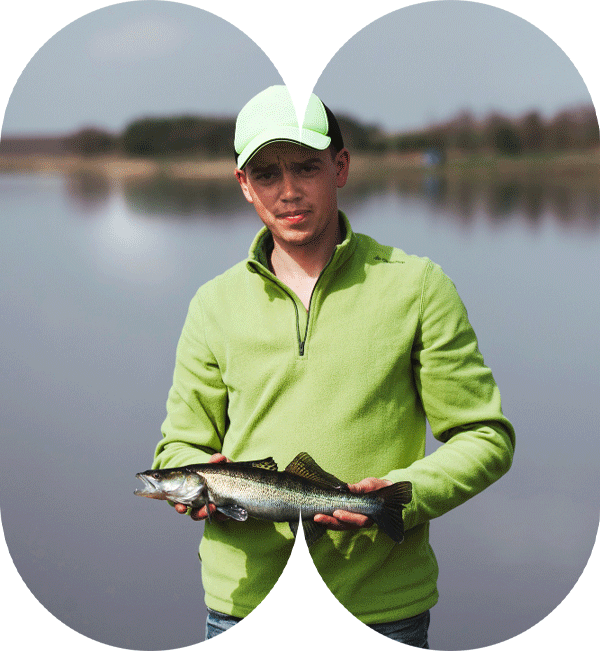
Aquaculture
Embark on a dynamic journey into aquatic realms with our Diploma in Aquaculture at American Skill University. Guided by industry leaders, this specialized program immerses you in the intricacies of sustainable fisheries and aquaculture. Explore topics such as aquaculture systems, fish health, and water quality management, gaining a comprehensive understanding of industry practices. Through hands-on experiences, from hatchery operations to facility management, you’ll acquire practical skills essential for success in this evolving field. Whether aspiring to manage fish farms, conduct aquaculture research, or venture into entrepreneurship, our diploma provides a robust foundation. Join us at American Skill University to dive deep into the world of aquaculture, where you’ll contribute to sustainable food production and environmental stewardship. Enroll now and set sail on a fulfilling career in aquaculture.
Diploma in Animal Science - Benefits
Introduction
In a world facing the dual challenges of increasing food demand and dwindling marine resources, aquaculture has emerged as a beacon of hope, offering a sustainable solution to meet the world's protein needs while protecting the delicate balance of aquatic ecosystems. The Diploma in Aquaculture equips you with the knowledge, skills, and practical expertise to navigate this dynamic and rewarding field, contributing to the future of seafood production and environmental sustainability.
This immersive program delves into the captivating world of aquaculture, encompassing a wide range of topics, including:
Aquaculture Biology and Ecology: Gain a comprehensive understanding of the biological and ecological principles that underpin successful aquaculture practices. Explore the diverse aquatic organisms, their life cycles, and interactions within their ecosystems.
Aquaculture Production Systems: Discover the intricacies of various aquaculture production systems, including pond culture, cage culture, recirculating aquaculture systems (RAS), and biofloc technology. Understand their design, management practices, and environmental considerations.
Aquaculture Feed and Nutrition: Master the principles of aquaculture nutrition, learning about the specific dietary requirements of different aquatic species, formulating balanced rations, and implementing optimal feeding strategies to maximize growth, survival, and health.
Aquaculture Health and Disease Management: Equip yourself with the knowledge and skills to prevent, diagnose, and treat aquatic diseases. Understand the principles of fish health management, biosecurity measures, and the responsible use of pharmaceuticals.
Aquaculture Economics and Business Management: Gain insights into the economic aspects of aquaculture, including production costs, market analysis,financial management, and marketing strategies, enabling you to make informed business decisions and operate a successful aquaculture enterprise.
Graduates of the Diploma in Aquaculture are highly sought-after by a diverse range of employers, including:
Aquaculture Farms and Hatcheries: Manage and operate aquaculture facilities, overseeing fish farms, shellfish hatcheries, and algae production systems. Ensure optimal production and maintain the health and well-being of farmed aquatic organisms.
Aquaculture Consulting Firms: Provide expert advice and guidance to aquaculture producers. Assist them in optimizing production practices, managing disease challenges, and developing sustainable business strategies.
Government Agencies: Contribute to the development and implementation of policies, regulations, and programs related to aquaculture sustainability, resource management, and environmental protection. Ensure responsible practices and safeguard aquatic ecosystems.
Research Institutions and Universities: Conduct research on aquaculture technologies, feed development, disease control, and sustainable production practices. Advance the field and contribute to knowledge-based solutions for future aquaculture development.
Non-Profit Organizations: Support community-based aquaculture initiatives, promote sustainable aquaculture practices, and contribute to aquaculture development projects. Empower communities and foster a sustainable future for seafood production.
Embark on this exciting journey to become an aquaculture specialist, a sustainability advocate, and a pioneer in the future of seafood production. Embrace the challenge, master the principles of aquaculture, and join a global community dedicated to nourishing the world, preserving aquatic ecosystems, and ensuring a sustainable future for all.
Top 5 Major Global Universities Offering a Diploma in Aquaculture:
- University of the Philippines Los Baños (Philippines)
- Nanyang Technological University (Singapore)
- Wageningen University and Research (Netherlands)
- University of Stirling (UK)
- American Skill University (USA)
Diploma in Animal Science - Syllabus
Course Overview
The Diploma in Aquaculture program is designed to provide students with a comprehensive understanding of the principles and practices of aquaculture, the science of rearing aquatic organisms in controlled environments. The program will cover a wide range of topics, including aquatic biology, water quality management, aquaculture systems, fish nutrition and feeding, fish health management, and aquaculture economics. Students will also gain hands-on experience in aquaculture techniques through laboratory and field exercises.
Program Learning Outcomes
Upon successful completion of this program, students will be able to:
- Demonstrate a strong understanding of the basic principles of aquaculture.
- Apply knowledge of aquaculture to solve practical problems in aquaculture production and management.
- Communicate effectively about aquaculture concepts and issues.
- Conduct independent research on aquaculture topics.
Course Structure
The program is divided into two semesters, each lasting 15 weeks. Each semester is further divided into three modules, each lasting 5 weeks. Students will take a total of 18 courses, each worth 3 credits.
Semester 1
Module 1: Introduction to Aquaculture
- Introduction to Aquaculture
- Aquatic Biology
- Water Quality Management
Module 2: Aquaculture Systems
- Aquaculture Systems and Design
- Pond Management
- Cage Culture Systems
Module 3: Fish Nutrition and Feeding
- Fish Nutrition and Physiology
- Feed Technology and Formulation
- Feeding Strategies for Aquaculture Species
Semester 2
Module 1: Fish Health Management
- Fish Diseases and Health Management
- Fish Parasites and Control
- Probiotics and Fish Health
Module 2: Aquaculture Economics
- Aquaculture Economics and Business Management
- Aquaculture Marketing and Promotion
- Aquaculture Regulations and Policies
Module 3: Aquaculture Practices
- Finfish Aquaculture Practices
- Crustacean Aquaculture Practices
- Mollusk Aquaculture Practices
Reference Books
- Aquaculture by John E. Halver
- Aquaculture: Science and Technology by John B. Jones
- Fundamentals of Aquaculture by James H. Grover
- Aquaculture: A Sustainable Approach by Robert R. Stickney
- Aquaculture: Principles and Practices by Gary H. Peterson and John E. Lovell
Journals
- Aquaculture
- Aquaculture Research
- Journal of the World Aquaculture Society
- Aquaculture International
- Reviews in Aquaculture
Related Websites
- World Aquaculture Society
- National Oceanic and Atmospheric Administration (NOAA) Aquaculture Program
- Food and Agriculture Organization of the United Nations (FAO) Aquaculture
- Aquaculture Association of Canada (AAC)
- National Aquaculture Initiative (NAI)
Useful YouTube Links
- Aquaculture by Crash Course
- The Future of Aquaculture by The World Economic Forum
- Sustainable Aquaculture by The Nature Conservancy
- The Importance of Aquaculture by The Food and Agriculture Organization of the United Nations
- Aquaculture: Feeding the World by National Geographic
Ted Talks
- The Future of Food: How Fish Will Feed the World by Paul Greenberg
- The Importance of Aquaculture in Feeding the World by John Buchanan
- The Potential of Aquaculture to Save the Planet by Thierry Chopin
- Aquaculture: The Next Food Revolution by Rob Trice
- The Future of Fish: How Aquaculture Can Save the Seas by Daniel Pauly
Audio Books
- Aquaculture by John E. Halver
- Aquaculture: Science and Technology by John B. Jones
- Fundamentals of Aquaculture by James H. Grover
- Aquaculture: A Sustainable Approach by Robert R. Stickney
- Aquaculture: Principles and Practices by Gary H. Peterson and John E. Lovell
Aquaponics
Embark on a transformative journey into sustainable agriculture with our Diploma in Aquaponics at American Skill University. This specialized program is meticulously crafted to immerse you in the innovative fusion of aquaculture and hydroponics. Led by industry experts, the curriculum delves into the intricacies of cultivating fish and plants synergistically, fostering a symbiotic ecosystem. From system design and water quality management to hands-on experiences in aquaponics facilities, you’ll gain comprehensive knowledge and practical skills. Whether aspiring to become an aquaponics farmer, researcher, or entrepreneur, this diploma provides a robust foundation for success in the burgeoning field of aquaponics. Enroll now at American Skill University to cultivate expertise that merges sustainable agriculture with cutting-edge technology, propelling you towards a rewarding career at the intersection of fish farming and plant cultivation.
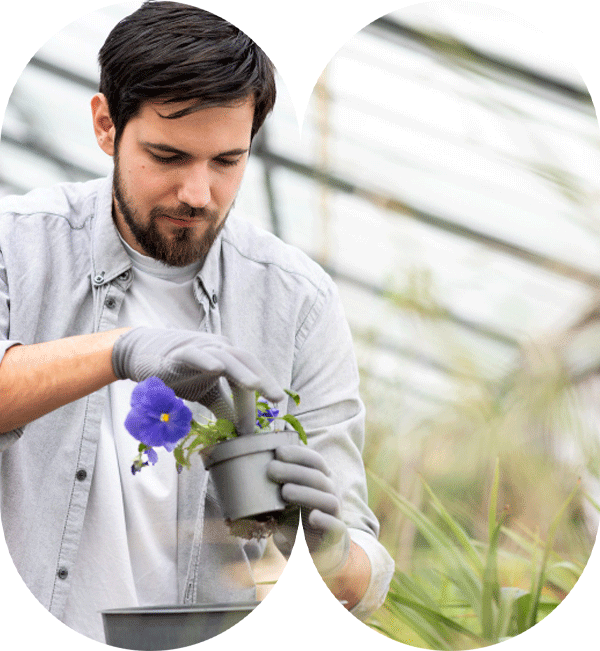

Diploma in Aquaponics - Benefits
In a world facing growing concerns about food security, sustainable practices, and environmental conservation, aquaponics has emerged as a transformative approach to food production, harmonizing aquaculture and hydroponics to create a thriving ecosystem. The Diploma in Aquaponics equips you with the knowledge, skills, and practical expertise to navigate this innovative field, contributing to a more sustainable and productive future for agriculture.
This comprehensive program delves into the fascinating world of aquaponics, encompassing a wide range of topics, including:
Aquaponics Principles and Ecology: Gain a thorough understanding of the symbiotic relationship between aquaculture and hydroponics, exploring the biological and ecological principles that underpin aquaponic systems.
Aquaponics System Design and Construction: Master the design and construction of aquaponic systems, including fish tanks, grow beds, filtration systems, and water circulation mechanisms, ensuring optimal conditions for both fish and plants.
Fish and Plant Selection and Management: Learn about the selection and management of suitable fish species and plant varieties for aquaponic systems, considering their compatibility, growth requirements, and nutritional benefits.
Nutrient Cycling and Water Management: Understand the principles of nutrient cycling in aquaponic systems, including the role of fish waste, bacteria, and plant uptake. Learn to maintain optimal water quality and nutrient balance.
Aquaponics Business and Marketing: Develop expertise in business management, marketing strategies, and customer engagement for aquaponic enterprises, enabling you to establish and run a successful aquaponic business.
Graduates of the Diploma in Aquaponics are highly sought-after by a diverse range of employers, including:
Aquaponic Farms and Commercial Growers: Manage and operate aquaponic farms, overseeing the production of a variety of fish and plants. Ensure optimal yields and maintain a balanced ecosystem.
Aquaponic Consulting Firms: Provide expert advice and guidance to aquaponic enthusiasts and commercial growers. Assist them in designing, implementing, and managing aquaponic systems for sustainable food production.
Educational Institutions and Research Organizations: Contribute to aquaponic education and research. Develop curricula, conduct research trials, and share knowledge to advance the field and promote aquaponics as a sustainable agricultural practice.
Urban Agriculture Initiatives and Community Gardens: Implement and manage aquaponic systems in urban settings. Promote local food production, education, and community engagement.
Non-Profit Organizations and Sustainable Development Projects: Promote aquaponics as a sustainable food production method in developing communities. Provide training, technical assistance, and resources to empower communities and improve food security.
Embrace the challenge, master the principles of aquaponics, and join a global community dedicated to transforming agriculture, conserving resources, and ensuring a more sustainable and equitable future for all.
Top 6 Major Global Universities Offering a Diploma in Aquaponics:
- Central Queensland University (Australia)
- Kōchi University (Japan)
- American Skill University (USA)
- Thompson Rivers University (Canada)
- University of the Virgin Islands (USA)
- University of Lincoln (UK)
Diploma in Aquaponics - Syllabus
Course Overview
The Diploma in Aquaponics program is designed to provide students with a comprehensive understanding of the principles and practices of aquaponics, the sustainable integration of aquaculture (fish farming) and hydroponics (plant cultivation without soil) in a recirculating system. The program will cover a wide range of topics, including aquatic biology, hydroponic systems, nutrient cycling, aquaponic design and construction, fish and plant selection, integrated pest management, and aquaponic business management. Students will also gain hands-on experience in aquaponics techniques through laboratory and field exercises.
Program Learning Outcomes
Upon successful completion of this program, students will be able to:
- Demonstrate a strong understanding of the basic principles of aquaponics.
- Apply knowledge of aquaponics to design, construct, and manage aquaponic systems.
- Select and cultivate appropriate fish and plant species for aquaponic systems.
- Monitor and maintain water quality and nutrient balance in aquaponic systems.
- Manage pests and diseases in aquaponic systems.
- Develop a business plan for an aquaponic enterprise.
Course Structure
The program is divided into two semesters, each lasting 15 weeks. Each semester is further divided into three modules, each lasting 5 weeks. Students will take a total of 18 courses, each worth 3 credits.
Semester 1
Module 1: Introduction to Aquaponics
- Introduction to Aquaponics
- Aquatic Biology for Aquaponics
- Hydroponic Systems for Aquaponics
Module 2: Aquaponic Design and Construction
- Aquaponic System Design and Layout
- Aquaponic System Components and Construction
- Materials Selection for Aquaponics
Module 3: Fish and Plant Selection for Aquaponics
- Fish Selection for Aquaponics
- Plant Selection for Aquaponics
- Aquaponic System Stocking and Planting Strategies
Semester 2
Module 1: Nutrient Cycling in Aquaponics
- Nutrient Cycling and Balance in Aquaponics
- Water Quality Management in Aquaponics
- Biofiltration and Nutrient Cycling Systems
Module 2: Integrated Pest Management in Aquaponics
- Pest Identification and Management in Aquaponics
- Disease Prevention and Control in Aquaponics
- Beneficial Organisms and Integrated Pest Management
Module 3: Aquaponic Business Management
- Aquaponic Business Planning and Development
- Aquaponic Marketing and Sales Strategies
- Aquaponic Regulations and Compliance
Reference Books
- Aquaponics: A Step-by-Step Guide for the Home Grower by Sylvia Bernstein
- Aquaponics for Beginners: A Complete Guide to Creating a Sustainable Ecosystem in Your Backyard by Mary Applegate
- Aquaponics: Sustainable Food Production by James Rakocy and Doug Shurtleff
- Aquaponics: Engineering an Ecosystem in Your Home by James H. Croft
- Aquaponics: The Complete Guide to Growing Fish and Plants Together by Sylvia Bernstein
Journals
- Aquaponics Journal
- Aquaponics International
- Journal of Aquacultural Engineering
- Aquaculture Engineering
- Water Research
Related Websites
- Aquaponics Association
- World Aquaponics Association
- Nelson and Pade Aquaponics
- The Aquaponics Source
- Backyard Aquaponics
Useful YouTube Links
- Aquaponics: A Sustainable Food Production System by The Aquaponics Source
- The Basics of Aquaponics by Nelson and Pade Aquaponics
- How to Build an Aquaponics System by Backyard Aquaponics
- Aquaponics: The Future of Food Production by TED-Ed
- Aquaponics: A Practical Guide by National Geographic
Ted Talks
- Aquaponics: A Sustainable Solution for Food Production by Will Allen
- The Future of Food: How Fish and Plants Can Feed the World by Sylvia Bernstein
- Aquaponics: Growing Food in Water by Mark Shepard
- Aquaponics: A Revolution in Agriculture by Cody Crump
- The Potential of Aquaponics to Save the Planet by James H. Croft
Audio Books
- Aquaponics: A Step-by-Step Guide for the Home Grower by Sylvia Bernstein
- Aquaponics for Beginners: A Complete Guide to Creating a Sustainable Ecosystem in Your Backyard by Mary Applegate
- Aquaponics: Sustainable Food Production by James Rakocy and Doug Shurtleff
- Aquaponics: Engineering an Ecosystem in Your Home by James H. Croft